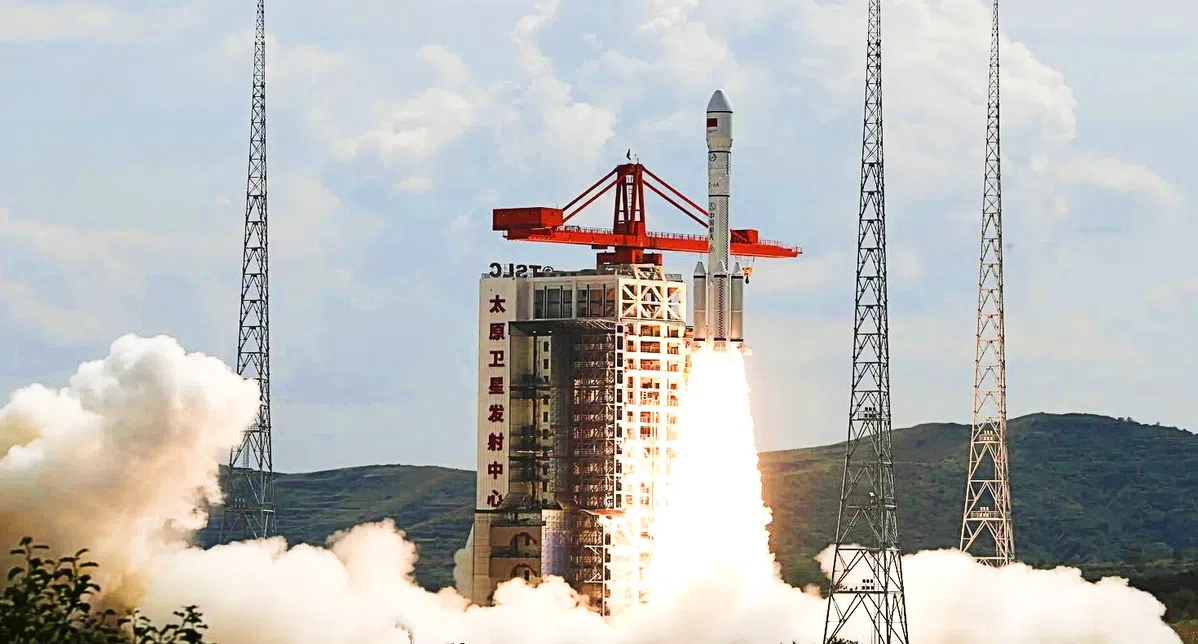Satellites and future space missions could be at risk after a Chinese rocket exploded in space. It happened 800 kilometers above Earth. A cloud of debris was created in orbit around the Earth.
Just like SpaceX, Chinese companies are also busy launching different satellites, in this case for satellite technology company Shanghai Spacecom. It became clear this week that this does not always go well, when a Long March 6A rocket put 18 satellites into low Earth orbit. This orbit is located 810 kilometers above the Earth’s surface. The satellites arrived safely, but the upper part of the 5,800-kilogram rocket broke. This created a huge cloud of debris, and this is not the first time this type of rocket has happened.
A huge constellation of satellites
China is joining the space race when it comes to developing a massive satellite constellation. Called Qianfan (Thousand Sails), the first 18 of a planned 14,000 satellites were launched this week. The launch went well, but then part of the rocket exploded, sending it hurtling through space in tiny pieces.
Space debris is moving faster and faster – in low Earth orbit the speed is around 30,000 km/h – and a small particle can cause significant damage to satellites, for example, but also to ascending spacecraft that may even have crews on board.
The US Space Command said the Chinese rocket released more than 300 pieces of space debris (each at least 10 centimeters in diameter), with the good news being that there appeared to be no immediate threats. According to LeoLabs, it’s a bigger problem: There are said to be at least 700 pieces of debris, and the number could rise to more than 900.
space debris
Here’s a quick snapshot: This cloud of space debris could linger in space for years to come, leaving a trail of destruction. Space debris is becoming a growing problem as more and more organizations work in space. It used to be the domain of governments, but it’s increasingly becoming commercial, with companies like Boeing, SpaceX, and Blue Origin all leaving space debris behind.
There are currently 10,000 operational satellites in Earth orbit, and SpaceX has the largest network with Starlink. So it will be a crowded place, especially with tens of thousands of pieces of debris moving between them. Putting the satellites higher up is not an option: they need to be in low Earth orbit, otherwise the air resistance will be too great and they will burn up or break apart.
Danger in space and on Earth
Sometimes space companies expect certain objects to burn up in the atmosphere, but they don’t. At that point, space debris also becomes a hazard to us on Earth, as one man recently witnessed when he heard a battery from the International Space Station go straight through the roof of his Florida home. The house ended up being damaged, but someone could have been standing in that part of the house and not lived to tell the tale.
The more explosions like this one happen, like the Chinese rocket this week, the more dangerous it becomes to go into space, but also the greater the chance that some debris will hit Earth. That’s why adhering to space debris mitigation guidelines is so important, but with more and more players in the space race, it’s a huge challenge.
Read more about space travel and stay informed with the updated Bright app.

“Total coffee specialist. Hardcore reader. Incurable music scholar. Web guru. Freelance troublemaker. Problem solver. Travel trailblazer.”







More Stories
GALA lacks a chapter on e-health
Weird beer can taste really good.
Planets contain much more water than previously thought